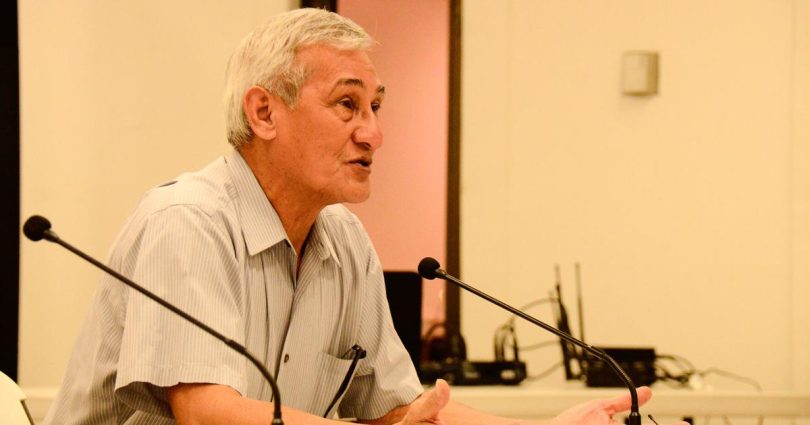[ad_1]
About $100 million – that’s how much in potential savings were lost due to project delays stemming from a procurement protest and subsequent appeals, according to Guam Power Authority General Manager John Benavente.
The project, GPA’s third phase renewable energy procurement, intended to utilize U.S. Navy properties and was supposed to be the first of the utility-scale projects to incorporate battery storage technology that could power the island with green energy at night. All of the utility-scale renewables have been solar power so far.
Procurement protests that proceeded to the Superior Court of Guam, however, resulted in significant delays. The case was eventually decided in favor of the government, but the Navy then withdrew the use of properties for the renewable facilities, due to a need to site military assets.
Officials are now looking at other federal properties to house renewable energy projects, but for now, the Phase III project is in abeyance. According to documents from the Consolidated Commission on Utilities, the Phase III project award had been canceled.
“We won the battle but lost the war. Because the (project) proponent no longer wants to even give a bid for a price because of the changes on the supply chain and issues in the world today,” Benavente told members of the Public Utilities Commission last week Thursday, as he spoke on a petition to go out for bid on a fourth phase of renewable energy projects.
“Therefore, we lost out in, I’d like to say $100 million of savings potentially for the ratepayers of Guam. And all because of a protest that really, at the end of the day, didn’t pan out to be anything,” Benavente added, stating further that he would like to pursue changes in the procurement process at some point in order to avoid a similar situation for upcoming projects.
The PUC ultimately approved GPA’s Phase IV renewable energy multistep bid documents at Thursday’s meeting. Any projects under this procurement must be commissioned within 36 months after a contract award, and must include energy storage that can distribute power at other times of the day.
There are a few reasons to pursue the procurement, PUC Administrative Law Judge Fred Horecky said at the meeting.
The first is that Guam law establishes renewable energy portfolio standards with the goal of reaching 50% renewable energy by 2035 and 100% by 2045.
But most important for ratepayers is the idea that more renewable energy can reduce energy costs, Horecky said.
On the same day that the PUC approved the Phase IV procurement, the body also decided to raise the fuel surcharge – the portion of monthly power bills that pay for fuel oil.
GPA’s underrecovery, or losses between the price of fuel and the current surcharge, is hovering around $40 million, necessitating another rate increase in what has been a long line of increases.
The construction of the new power plant at Ukudu, anticipated to be completed in 2024, and additional renewable energy projects are expected to reduce fuel imports, lowering the overall cost of power.
Right now, the cost of the Phase IV projects is not known, but “that is what the procurement will show us,” Horecky said Thursday.
Once the procurement is done, GPA will come back to the PUC with cost estimates and for additional approval.
There are some infrastructure estimates out of GPA’s updated Integrated Resource Plan, which presents a total of about $232 million in projects.
“But that cost did not include power plants. So, we’ll find out after the bids what those costs will be,” Horecky said.
There are some obstacles for the procurement, however, one being land to build the facilities.
“The proponents will either have to buy land or lease land, … and also there’s the issue about integration studies,” the ALJ added.
The studies will say what steps will have to be taken to integrate the renewable projects with the power grid, which will be at the bidder’s costs and will have to be taken into account, Horecky said.
[ad_2]
Source link








